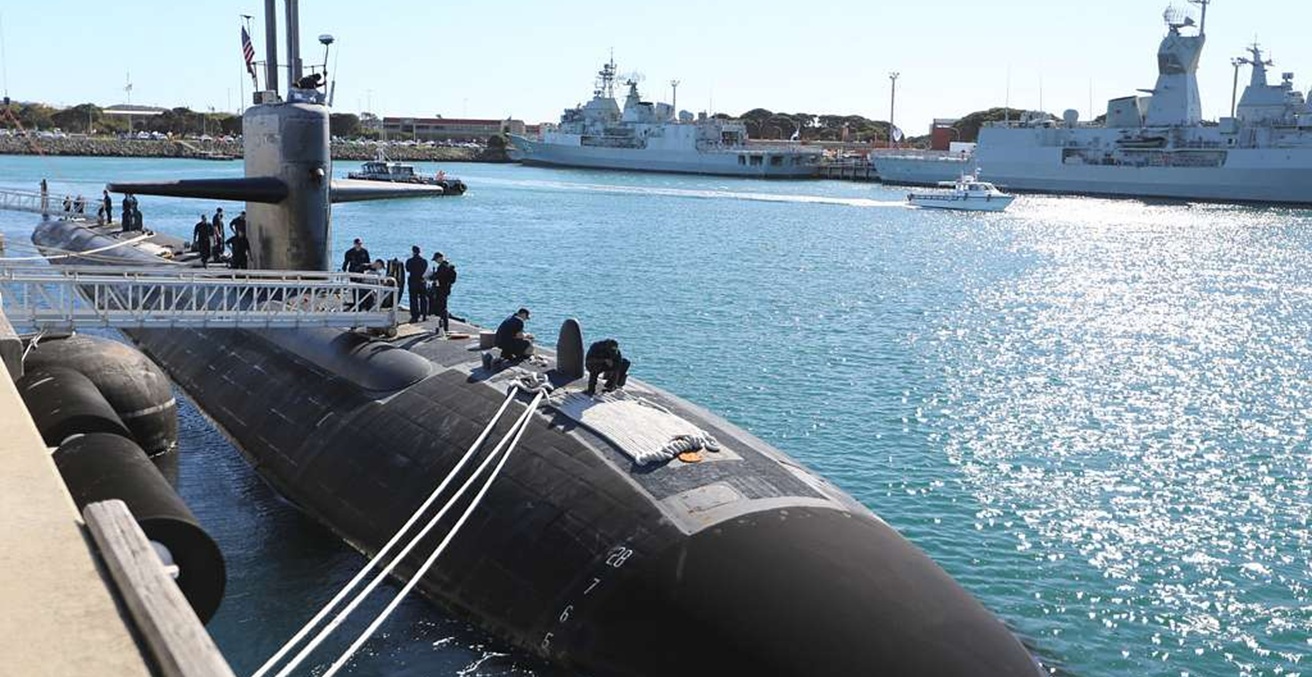Mario Draghi’s resignation, the looming US midterm elections, and a decline in European support pose new challenges for Western cohesion. There is some cause for concern, both in Ukraine and further afield.
It is the nature of modern journalism to be pessimistic. From years of experience observing geopolitics across several continents, I am – like most others – hoping for the best but fearing the worst.
In recent days, however, I have felt a deep sense of foreboding about the future of the world, in particularly, the West. Significant events in Europe and the United States in the past week have only served to confirm that President Joe Biden’s declared goal to strengthen the world’s democracies is rapidly losing ground.
The trigger was the resignation of Mario Draghi as Italy’s prime minister and the collapse of the Italian government. Italians now face a return to the unpredictable politics of the turn of the century and an uncertain economic future both within the Eurozone and in their daily lives. Elections for a new government take place in early September. Between now and then an array of candidates and parties will jostle for power, with an unpredictable outcome.
Draghi, a former head of the European Central Bank and one of a few world leaders one might call “statesmen,” has been an important influence in consolidating European support for Ukraine against the Russia’s barbarous attacks. Draghi was the first western leader to support Ukraine’s bid to join the European Union, remarkable given that traditionally Italy has, of the major EU countries, had the closest ties to Moscow. With Draghi gone, Europe and NATO look weaker in the stand against Russia. Italy’s outgoing foreign minister, Luigi di Maio, put it bluntly when he told Italian radio: “They made a toast in Moscow, because Mario Draghi’s head was served to Putin on a silver plate.”
The European Union this week imposed more sanctions on Russia, and European Commission president Ursula von der Leyen remains resolute, saying the EU will back Ukraine for as long as it takes. However, it seems that support is wilting in both France and Germany, as well as in some of the east European countries that depend on Russian oil and gas for energy.
Germany’s new chancellor, Olaf Scholz, who is understandably cautious given the nation’s dependence on Russian oil and gas, appears to be among the leaders who “talk the talk” but don’t “walk the walk.” His fears that Putin will turn off Germany’s supply of Russian gas as winter approaches were more than justified last Wednesday when Gazprom, Russia’s state-owned utility, slashed the flow of gas through its Nordstream 1 pipeline by half to just 20 percent of capacity, a move that created a surge in wholesale gas prices across Europe and seems certain to plunge Europe’s largest economy into recession. Scholz’s plight, however, is no excuse for his poor record of support for Ukraine.
The most recent support tracker by the Kiel Institute for World Economics shows that the 37 countries, including Australia, that have pledged more than €30 billion (AU $43.2 billion) for Ukraine, have delivered only about a quarter of that amount. Germany had promised €620 million (AU $905 million) but has delivered just €290 million (AU $423 million).
France is hardly any better. President Emmanuel Macron is falling far short of his goal to be the EU’s political leader. The French president’s En Marche party lost seats to both hard right and left parties in the recent general election and Macron is now heavily distracted by domestic issues. The perception is that he is more interested in bringing about a settlement to the Ukraine war than in helping the Ukrainians. The French president has vowed that France will always support Ukraine while insisting that the West must not humiliate Putin and does not need to fight Russia. Though it sounds duplicitous, there is little doubt many Europeans hold this view.
Joe Biden has been by far the most generous donor of arms to Ukraine. Though Biden continues to stridently insist that Putin must be defeated, he has shown extreme reluctance to follow this up. It seems increasingly likely that Biden and the Democrats may face defeat in America’s November midterm elections. If the Republican party win the House or the Senate, or both, under the de facto leadership of Trump or one of his acolytes, US support for Ukraine may start to fall away.
Frustration among Democrats at Trump’s escape from prosecution for his role in the Capitol Hill riots surfaced in the latest session of the January 6 Committee. A show-reel of convincing evidence showed Trump sat in the Oval Office watching Fox News’ live coverage of the assault on the Capitol by a mob of his own supporters, and did nothing to stop it. The detailed evidence, almost all of which was published on 21 and 22 July, does not sound like the “witch hunt” described by Trump followers. There were testimonies from senior public servants, top military officers, members of the administration and some Trump family members. For instance, General Mark Milley, chairman of the Joint Chiefs of Staff, expressed astonishment that Trump had not intervened at any stage to call a halt to the violence: “no call, nothing, zero!”. The panel will be back with more in September. Meanwhile, the Democrats hope against hope that the Justice Department will indict Trump, and that the tide of popular opinion will turn against the former president.
What does all this mean? Sadly, there is no sign that Putin is losing the war. It is clear the West has not garnered the support it requires for sanctions to work effectively. At the last count, more than 60 countries had decided that they would not apply sanctions – or any other measures – against Moscow. These countries, including huge democracies like India, represent almost two-thirds of the world’s population. Some have autocratic leaders who have a sneaking – sometimes open – admiration for Putin. Within the West there are mounting concerns not only about the costs Ukraine is incurring but also for the war’s direct impact on Europeans, North Americans, and their allies. Ukraine’s budget deficit is currently running at about US $5 billion (AU $7.2 billion) a month. Tens of billions of dollars more in Western aid is needed to prevent Ukraine’s rapid slide into economic chaos, let alone the enormous cost of post-war reconstruction, which is estimated at US $750 billion (AU $1,080 billion). Who is going to pay?
The damage to Europe and North America comes mostly from inflation, which is now running out of control. The worst affected country (apart from non-EU Turkey at 80 percent) is the United Kingdom, where inflation is heading into double figures. Moreover, Russia’s blockade on shipments from Ukrainian is causing immense damage to millions of Africans. It is no coincidence that Russia’s foreign minister Sergey Lavrov is now on a disingenuous tour of Africa claiming Russia is not responsible for rising levels starvation on the continent. UN Secretary General António Guterres recently brokered a deal between Moscow and Kiev to allow the free passage of grain shipments leaving Odesa and two nearby Black Sea ports. He hailed it as the most important deal he had ever done, only to suffer the embarrassment, just one day later, of global media coverage of the Russian bombardment of civilian portside targets in direct breach of the agreement.
It is hard to be optimistic about the future. Ukraine is pleading for satellite-guided rockets with a range of more than 70 kilometres. The first of two batches have destroyed ammunition depots, air defences, and command posts deep in Russian-held territory. But there is unease in the Pentagon and in the Biden administration that providing more sophisticated weaponry will drag NATO into an all-out war. If Biden is to achieve his declared aim of defeating Putin in the Ukrainian war, he will need to strengthen his resolve further and deliver the arms Kiev needs without further delay.
Colin Chapman is editor-at-large of Australian Outlook and a fellow of the Australian Institute of International Affairs. He was president of AIIA New South Wales. Colin is a writer, broadcaster, and public speaker who specialises in geopolitics, international economics, and global media issues. He has held executive positions at the BBC and Financial Times.
This article is published under a Creative Commons Licence and may be republished with attribution.




